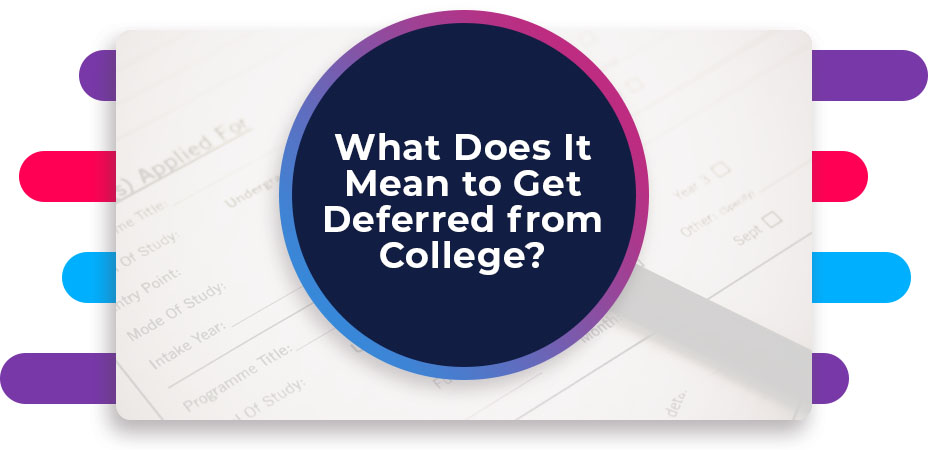During a college tour, ask about class sizes, faculty accessibility, student housing, campus safety, extracurricular activities, career services, study abroad programs, dining options, and financial aid opportunities. Questions about the surrounding community and internship availability can provide additional insights into the college experience.
Spring is drawing near, and we all know what that means, right? Jean jackets! Frozen drinks! OTT prom proposals! But most importantly (if you’re applying to college, anyway), springtime means gearing up for college campus tours.
As you’re probably aware, many schools are having virtual college tours in lieu of in-person tours this year due to the coronavirus pandemic. Sure, it’s kind of a bummer to not get to see the school in person, but look on the bright side: You can now tour a bunch of schools without worrying about the cost of travel and additional expenses. And you get to do it all from the comfort of your own home!
Whether you’re going on an in-person college tour or participating in a virtual college fair, asking the right questions is key to getting all the juicy details about the school. Not sure what to ask your tour guide? Below, here are 10 questions to ask on a college tour that will help you get the most out of your visit.
1. Why did you choose this school?
This is a good opening question for your tour guide because it gets them thinking back to what initially drew them to the school. Follow-up questions could include, “How happy have you been at this school so far?” and “What, if anything, would you change about the school?”
2. Who would you NOT recommend this school for?
Keep in mind that most college tour guides are in love with their school and don’t have a bad word to say about it. For this reason, you should (politely) challenge their opinions about the school by asking them who might not be the best fit for this particular school. If you happen to match their description of someone who isn’t a good fit, well — at least you found out sooner rather than later, right?
3. What majors/programs are popular?
Whether you’re still undecided on a major or you want to know what programs the school is best known for, this is a good question to ask regardless. Already picked a major? Ask them to spill the tea on the reputation of your department/program.

4. What types of scholarship opportunities are available?
You plan to apply for scholarships anyway, right? You might as well get the inside scoop on what kinds of scholarships and grants they have available on campus. Dig a little deeper by asking what the average financial aid package is and whether there are work-study opportunities available.
5. How often are career fairs/campus recruiting events held?
Career fairs are common at most universities and colleges — as they should be. Both in-person and virtual career fairs can help you launch your career after college, so make sure these opportunities are abundant on campus. While you’re on the subject, ask about internship opportunities.
6. How accessible are the professors/administrators/financial aid officers, etc.?
These people can make or break your college success, so it’s important that they’re easily accessible and willing to do what they can to help!
7. What do students do for fun on campus? What about life off-campus?
Find out everything you can about campus life. After all, this is going to be your home for at least the next four years of your life. What is the social scene like? What do students do when they’re not studying? And, of course, the ultimate question every student must ask: How’s the food?

8. How diverse is the student body?
This is an important question to ask, especially if you can’t visit the campus in-person to see for yourself just how diverse the campus is. Not only is it vital that minority groups have representation on campus, but diversity on campus also benefits non-minority groups by exposing them to different backgrounds and perspectives. If you’re a minority, don’t forget to ask about support services and programs that support students like yourself.
9. What is the average class size for lower- and upper-division courses?
There is an ongoing debate regarding class size—specifically, whether smaller classes are actually better for learning outcomes. But the truth is, it may just come down to personal preference. At the very least, this question will give you a better idea of what to expect when you sign up for classes.
10. What kinds of academic support programs does the school have?
You want to choose a college that will help set you up for success. If you’re struggling in school, what resources will be available to help you? Be sure to ask about tutoring programs, computer labs, writing centers, and other programs that might support your undergraduate experience.
11. How would you describe the campus life and student body? What makes this student body unique compared to other colleges?
Our campus life is vibrant and diverse, with over 200 student organizations that create a dynamic community. We have students from 47 states and 22 countries, bringing a rich mix of perspectives and experiences. Most students are actively involved in at least two campus groups, fostering a collaborative and inclusive environment.
12. What percentage of classes are taught by professors, and how often do they hold office hours
Approximately 85% of undergraduate classes are taught directly by faculty members, not teaching assistants. Most professors hold 3-5 office hours per week, with many offering additional virtual consultation times and being very accessible to students, ensuring personalized academic support.
13. Can you walk me through a typical day for a first-year student?
A typical day includes 2-3 classes, lunch in the dining hall with friends, participation in a student organization meeting, study time in the library or computer labs, and evening activities like campus events or club meetings. We emphasize a balanced approach to academic and social experiences.
14. What undergraduate research opportunities are available, and how early can students get involved?
Students can start undergraduate research as early as their freshman year. We offer research assistant positions, summer research grants, and faculty-mentored projects across all major disciplines. About 40% of students participate in at least one research project before graduation.
15. How would you characterize the school spirit?
We have strong school spirit demonstrated through annual events like Homecoming, campus-wide festivals, athletic events, and community service days. Our students are passionate about representing the school and creating memorable experiences that build a sense of community.
16. What study abroad opportunities are available?
Approximately 60% of our students study abroad, with programs in over 40 countries. We offer semester-long, summer, and winter break international experiences with robust financial support and academic credit integration, allowing students to gain global perspectives.
17. How does the college support students in finding internships and summer jobs?
Our career services center offers comprehensive support, including resume workshops, internship fairs, alumni networking events, and personalized career counseling. We have partnerships with over 500 companies, and 75% of our students complete at least one internship during their college years.
18. How do students get into first-choice classes, especially for freshmen?
We use a priority registration system where seniors register first, followed by juniors, sophomores, and freshmen. First-year students receive academic advising to help them navigate course selection and ensure they’re on track for their academic goals.
19. What unique leadership experiences are available?
We offer numerous leadership programs, including a comprehensive leadership certificate, student government roles, peer mentoring programs, and major-specific leadership tracks. Many students complete capstone projects that integrate practical experience with academic learning.
20. What’s the balance between lecture and discussion-based classes?
Our classes typically blend lecture and discussion-based approaches. Depending on the discipline, classes range from 30-70% discussion,
Asking the Important Questions
There are plenty of great questions to ask on a college tour that aren’t on this list, but, hopefully, this gave you a decent starting point. Just remember that you may have a limited amount of time to chat up a tour guide or college representative. Tackle the important questions first before you start asking things like, “How strong is the merch game?” and “Is a Jamba Juice within walking distance of the dorms?”
encouraging critical thinking and active student participation. Smaller upper-division classes tend to be more discussion-oriented.
Happy touring!
Do you have any college touring experience? Or are you looking for advice from others who have been on college tours? Reach out to our Tallo Community. We have students and professionals who share their advice on everything from college tours to landing a job.
Image Credits:
Source: Bob Pool/Shutterstock
Source: David A Litman/Shutterstock
Source: Nick Beer/Shutterstock







